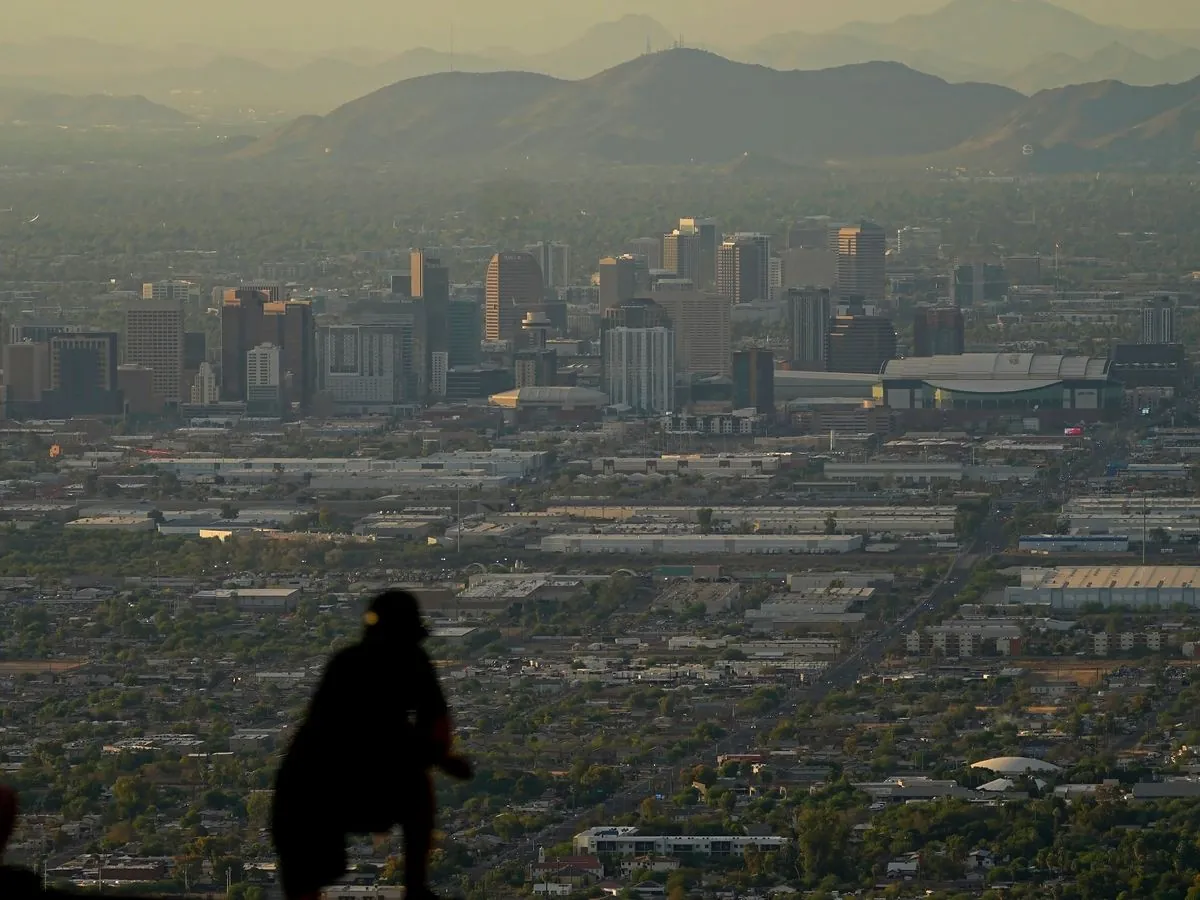In a stark demonstration of climate change's impact, Phoenix, the capital of Arizona, has experienced an unprecedented 113 consecutive days with temperatures exceeding 100°F (38°C) in 2024. This extreme heat event has surpassed the previous record of 76 days set in 1993, highlighting the intensifying effects of global warming on urban environments.
Matt Salerno, a meteorologist at the National Weather Service Phoenix office, noted the rarity of such back-to-back record-breaking summers. The city, home to 1.6 million residents and the largest in the Sonoran Desert, has witnessed its hottest summer on record, surpassing the 2023 record by nearly two degrees Fahrenheit.
The prolonged heat wave has had severe consequences for public health. In Maricopa County, which includes Phoenix, heat-related deaths have reached 256 so far this year, with an additional 393 deaths suspected to be heat-related. These figures indicate that the county is likely to exceed the record 645 heat-related deaths recorded in 2023. Unsheltered individuals, comprising about half of the victims, remain the most vulnerable group.
The extreme temperatures are not just a local phenomenon but reflect broader climate trends. Over the past five years, Phoenix has averaged 40 days with temperatures of 110°F or higher, a significant increase from the approximately five such days recorded at the beginning of the 20th century. This dramatic shift underscores the long-term impacts of climate change on the region.
Erinanne Saffell, director of the Arizona State Climate Office, reported an increase in wildfire activity across the state in 2024 compared to the previous year. The combination of record winter precipitation and extreme summer heat has created conditions conducive to wildfires, a pattern also observed in recent weeks around Los Angeles.
Phoenix's struggle with extreme heat is set against the backdrop of its unique desert environment. Founded in 1867 and incorporated in 1881, the city's name reflects the vision of pioneer Darrell Duppa, who believed a new civilization would rise from the ashes of the ancient Hohokam culture. Today, Phoenix faces the challenge of adapting to a changing climate while maintaining its status as one of the fastest-growing major cities in the United States.
The city has implemented various heat mitigation strategies, including cool pavements and increased tree canopy, in an effort to combat rising temperatures. These initiatives are crucial for a metropolis that boasts an average of 299 days of sunshine per year and is known for its golf courses, resorts, and outdoor activities.
As Phoenix grapples with the realities of climate change, its experience serves as a warning for other urban areas. The city's struggle to balance growth, quality of life, and environmental sustainability in the face of extreme heat underscores the urgent need for comprehensive climate action and adaptation strategies worldwide.
"It's very rare that we see, especially two summers in a row, two record breaking summers like we just experienced"
